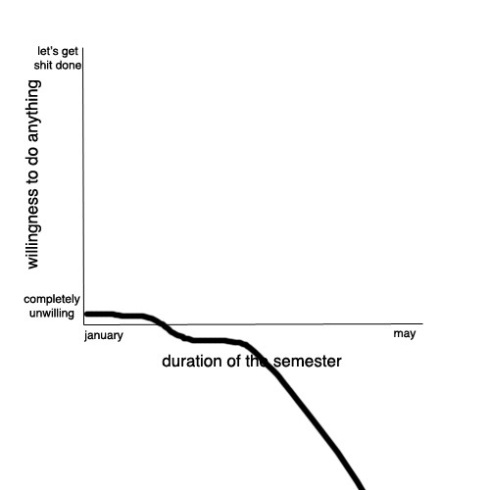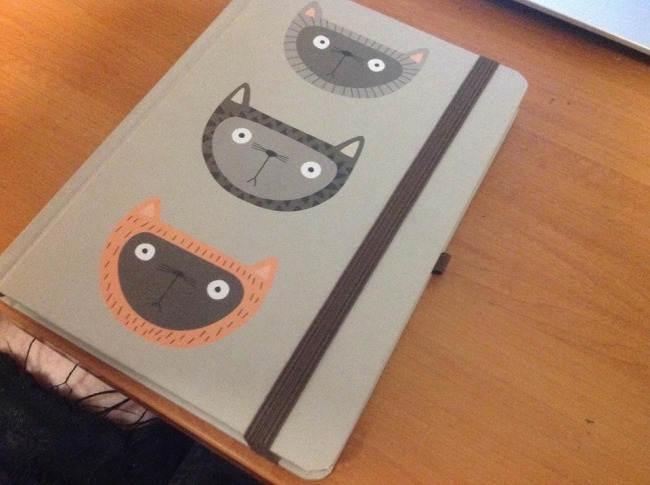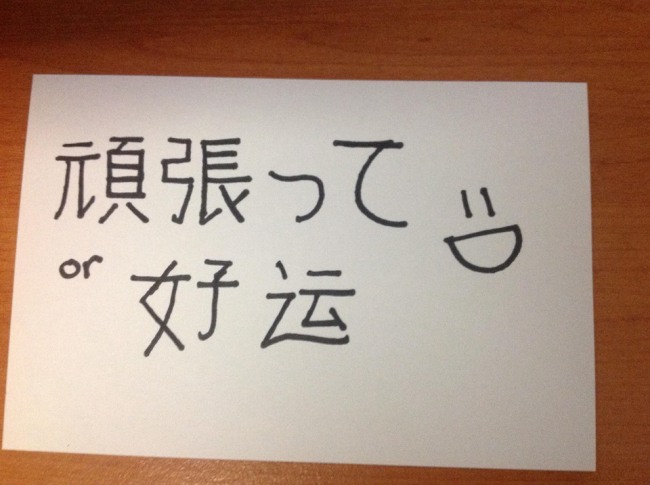Hello, I am sorry for not being online lately to post on my blog. I have been busy with my exams, a couple of them being essays, so I’ve had a lot of reading to do (and have had a lot of procrastinating to do, too). ‘
Whilst studying for my Japanese exam, I have come to think, what kind of learning methods are involved in learning a language?
I started to get the language learning bug when I graduated from high school at 17 and moved to Melbourne, and consequently, I have been learning Japanese at university for a little over a year now, and I have been learning Mandarin outside of university for around a month.
Starting to learn a language independently, and having not learned a language before that, it has taken a while for me to actually get used to knowing what is involved to learn a language effectively. It’s not to say that I am an A grade student at learning languages, I just know and have myself experienced a lot of mistakes that can be made whilst learning a language. So therefore, I hope this guide will be able to help you learn measures to take when learning to speak and write in a different language.
Starting Out:
If you are learning a language to some degree of independence then I strongly recommend that you get a textbook. There are a lot of textbooks out there, some better than others, so I recommend you look at some forum boards or websites online to find out which textbooks are good, and which textbook will be good for you kind of language learning. For learning Japanese, I am currently using these books.
I am currently up to the green Genki II textbook, but if you are starting from scratch, get the orange Genki I. At university you go through one of those textbooks in a year. I’ve found the Grammar Dictionary quite handy, as it gives more depth to the grammar explanations found in the textbook, and also has more grammar definitions. It is definitely convenient if you want to extend you learning. Also, the vocabulary is book is convenient as it explains when to and when not to use certain words, has common words, and you will start finding these words and phrases all the time in anime.
For Mandarin, I have these books:
The New Practical Chinese Reader textbook and workbook are quite handy for an overall learning of the language, and people on forumboards have said that it is probably one of the best Mandarin learning textbooks on the market at the moment, BUT my complaints, and other people’s, have been the grammar explanations and the vocabulary is not that appropriate. So I ended up getting another textbook, the blue one, which has good vocabulary lists and puts the grammar into nice rules.
But at the end of the day, the books you get should be oriented towards the way that you learn. So if you find any books that you think will also be quite convenient and beneficial, then get them.
Phonetics, then Morphology/Syntax, and then Semantics/Pragmatics:
As a linguistics student, these words make sense, but you may have not studied Linguistics before, so I will explain the heading for you. Often, you will find when you are learning a language and the concepts within a language, you first learn how to pronounce and say something, such as a consonant sound. This is called phonetics. When you first learn a language, even though this may sound redundant, and it will become tedious for a while, I cannot stress enough how important it is to get the phonetics down. Because, how are you going to be able to read grammar and sentences in the language if you don’t know how to say it, and if you don’t know what it sounds like in your head?
So for the first month or so, I just recommend spending half an hour of time out of your day just to practice the new unfamiliar sounds of a language. It may be the ‘retroflex’ sounds of Mandarin, where the tip of the tongue is curled slightly backwards, which in pinyin are zh, ch, sh and r. Also, languages may also contrast sounds that you may not be able to pick up on without practicing.
Then, once you have got that down good, and whilst you are learning those sounds, it is important to start learning the grammar of the language; the morphology and syntax. The morphology of the language is the modification that happens in words which serves a grammatical purpose, like in English, happen becomes happened, establish to disestablishment. This includes what you’ve probably heard as inflection (inflectional morphology). English doesn’t have much of this compared to some languages, and in languages like Japanese, morphology plays a heavy grammatical role. Then, there are also grammatical functions which involve the syntax of the language, such as how words are ordered in a sentence. (For example in English, it is a subject-verb-object language – I-eat-McDonalds).
Lastly, you then learn the semantics or pragmatics in the use of language. Semantics being the meaning of a sentence not concerning context, and pragmatics, the meaning of the sentence relating to the context. So, you’ve probably learned how to say a grammatical function, where it goes in a sentence, and then you will usually learn what it means in a sentence (semantics), and then in which situations it is appropriate to use it (pragmatics).
You will find a lot of language textbooks use this method anyway. So you don’t really have to focus on this too much, but it is nice to be aware of this.
Language is a Skill, not an Academic Discipline:
Even if you learn a language in an educational institution, using a language is a skill. Therefore, your best chance of learning a language is to view it as one, and not to see it as a subject that you read a book on and suddenly you can bullshit an essay and get a high score (Most of my university course has been that, woopsies). So therefore, to improve a skill, you practice a skill, right? Yes. You are not going to master a language by spending an hour on it every month or so. You have to study for a language, bit by bit, every, damn, freaking, DAY.
You’re going to have to spend that half hour in the morning learning vocabulary, and an hour at night answering questions and trying to use the language, as a skill.
Exposure is Important:
Sorry sluts, I don’t mean summer skin exposure to put on Instagram. What I am actually referring to is situations where your senses are having to react to the language, and then your brain is having to process it and try and make sense of it.
In the sense of Japanese, I usually watch anime (Yaoi specifically *licks lips*),
I also read manga in Japanese from time and time, and I also read websites that are in Japanese. In Mandarin, I listen to music (EXO-M anybody) in the language (I also listen to K-Pop too, so I should start learning Korean x.x). This is a good methods in the respect that it makes your senses used to what the language sounds like, and if you are wanting to remember things like vocabulary, it gives those words meaning. They aren’t just a bunch of sounds that you are trying to remember; they have context. It is easier to remember things when there is a context given to them. I cannot stress this enough when you start to learn a language; make it a part of your life.
Think in the Culture and Language:
As language is a way for someone to express their thoughts and ideas, it is important to know the way that the language functions and how it affects the way people think. For example, a society more focused on hierarchy may have levels of politeness which you have to take note of when speaking to someone.
Don’t Neglect Vocabulary:
Possibly the biggest hurdle for those who are learning a language is the vocabulary. Especially for those who can’t properly put the context into the words to remember it. And the annoying thing is, vocabulary is key in speaking a language. You may know how to say the grammar and the morphological changes that take place to a verb or adjective, but it means nothing and the sentence you are constructing in your head falls to pieces if you don’t know how to say all the words.
So don’t neglect your vocabulary. What I do is I make palm cards with the Japanese/Mandarin reading on one side, and the English reading on the other side, making a story based on what the word sounds like. So for the word ‘train’ in Japanese, which is pronounced ‘Densha’, I just imagine an old lady on a train having her dentures fall out (Yes, I’m quite diabolical indeed).
I also have a cute Anki (memory sentences) books with cats on the cover, which helps me to remember words! ❤
And also placing post-it notes on household objects with their different names in the language you are learning is a good way to learn new words, too.
Find a Native Speaker! Use Your Skills!!!
If you can find a native speaker for the language that you are learning, then that is amazing. It is very helpful to have someone who is a native speaker of the language to practice with, as they can intuitively know when you are making an error, and then correct you on it, and you are using your skills in an interactive environment. Plus, it also allows you to connect to someone on a deeper level if you are speaking to them in their own language.
It may be hard for people who don’t live in a diverse setting to actually find a native speaker of the language that they are learning. That’s why there are websites like SharedTalk. Just sign up there, and there are always people willing to add you to skype or to have conversations with you whilst you both learn each other’s language. And it’s definitely a rewarding experience.
Mistakes I Have Made:
Not studying a language for a couple of weeks.
Thinking “OH, I will just remember this vocabulary if I do nothing.”
Thinking that I could cram for a language.
Not putting myself in a situation where I am using my skills
Not being interactive with my language learning
In Conclusion:
Everyone learns differently, but I hope what I have outlined helps to give you a better standing in the first part of learning a language. I will probably make another advice post on how to learn Kanji and Chinese Characters, and what happens when you hit a more intermediate level. But for now, if you just use your language learning every day and practice a bit more every day and are not afraid to challenge yourself, then you should be fine! Good luck!










You should consider doing Q & A. Everyone would love to ask you anonymous questions! xox